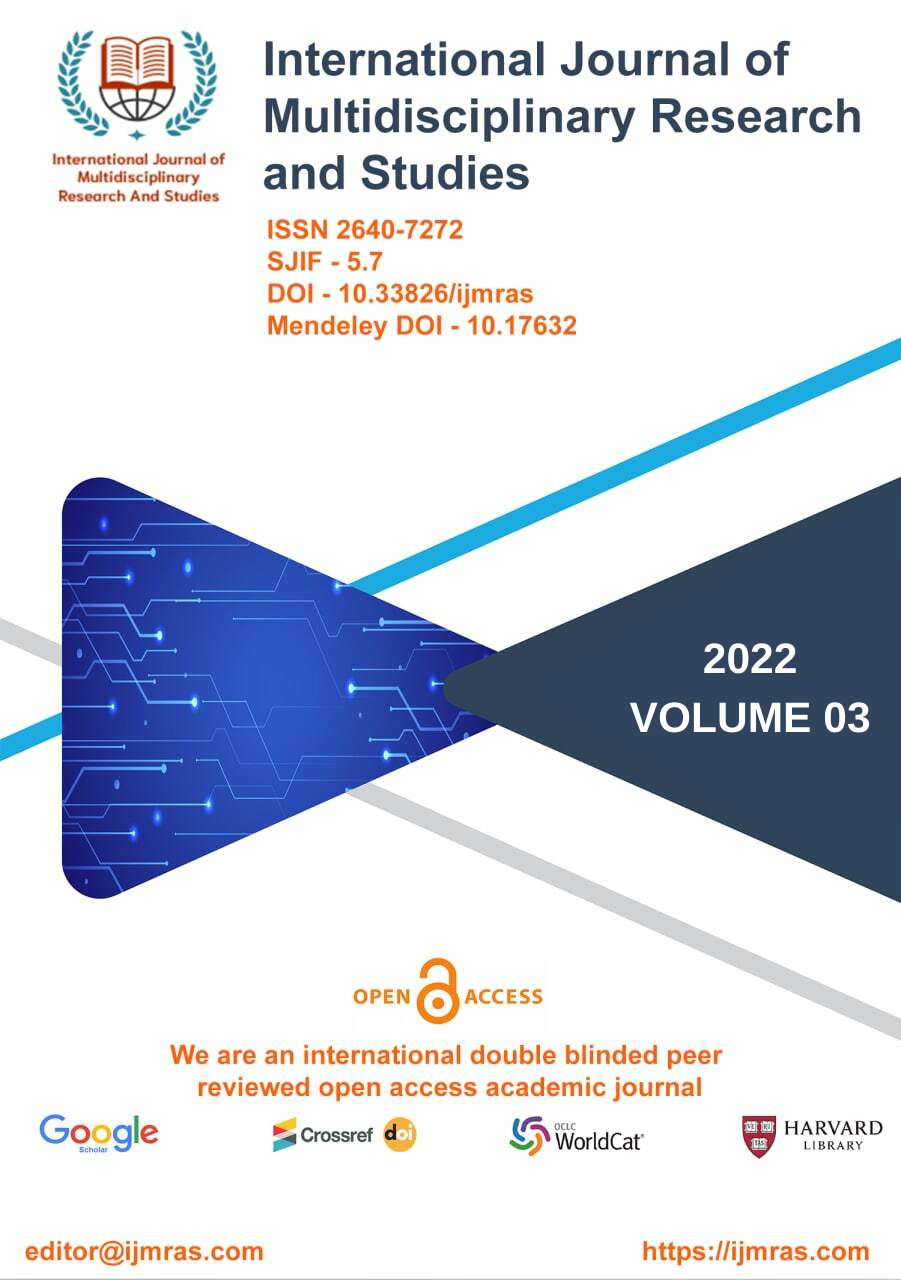A STUDY OF THE IMPACT OF GLOBALIZATION ON THE WOMEN IN THE HIGHER EDUCATION

Abstract
According to the findings of the study, factors such as household wealth and women's educational status have a significant bearing on the number of female farmers who are employed. This is reinforced by the fact that there is a negative connection between socioeconomic qualities and the respondents' engagement in crop production. The respondents' involvement in crop production decreases as socioeconomic features increase. The percentage of women who work in dairy farming ranges from 45 to 70 percent. In rural regions, women are responsible for practically all of the duties associated with the dairy industry There is no denying the contribution that Indian women have made to their nation's development; nonetheless, the level of their involvement varies considerably throughout time and space. The considerable role that women play in agriculture, jobs closely connected to it, and domestic responsibilities have been largely ignored. The ever increasing demand for milk and other dairy products has turned dairy farming into a lucrative industry for women The Indian government reports that 85 percent of rural women are involved in the cattle industry. The phrase "globalization" has become synonymous with this decade. It is a phrase that has become so ubiquitous that it may be found in every aspect of society. It is not simple to determine (Burbules et al. 2000) what is at stake in the globalization question, the functions that the word truly performs, and its repercussions for modern theory, policy, and critical pedagogy.
Keywords
Globalization,, Women,, Higher EducationHow to Cite
References
Babaei, A. A., Alavi, N., Goudarzi, G., Teymouri, P., Ahmadi, K., & Rafiee, M. (2015). Household recycling knowledge, attitudes and practices towards solid waste management. Resources, Conservation and Recycling, 102, 94–100. doi:https://doi. org/10.1016/j.resconrec.2015.06.014
Badan Pusat Statistik Banda Aceh. (2018). Statistik Banda Aceh 2017. Banda Aceh.
Chakrabarti, S., Majumder, A., & Chakrabarti, S. (2009). Public-community participation in household waste management in India: An operational approach. Habitat International, 33(1), 125–130. doi:https:// doi.org/10.1016/j.habitatint.2008.05.009
Christensen, D., & Bach, L. T. (2015). A Danish– Vietnamese partnership for business and technology development in solid waste management. Resources, Conservation and Recycling, 105, 123–133. doi:https://doi. org/10.1016/j.resconrec.2015.10.019
Chung, W., & Yeung, I. M. H. (2019). Analysis of residents’ choice of waste charge methods and willingness to pay amount for solid waste management in Hong Kong. Waste Management, 96, 136–148. doi:https://doi. org/10.1016/j.wasman.2019.07.020
Damanhuri, E. (2005). Some principal issues on municipal solid waste management in Indonesia. In In expert meeting on waste management in Asia-Pacific Islands
, Oct (Vol. 2729). Tokyo: Expert Meeting on Waste Management in Asia-Pacific Islands. Das, S., Lee, S.-H., Kumar, P., Kim, K.-H., Lee, S. S., & Bhattacharya, S. S. (2019). Solid waste management: Scope and the challenge of sustainability. Journal of Cleaner Production, 228, 658–678. doi:https://doi. org/10.1016/j.jclepro.2019.04.323
de S. Pereira, T., &Fernandino, G. (2019). Evaluation of solid waste management sustainability of a coastal municipality from northeastern Brazil. Ocean & Coastal Management, 179, 104839. doi:https://doi. org/10.1016/j.ocecoaman.2019.104839
Desa, A., Kadir, N. B. A., &Yusooff, F. (2012). Waste education and awareness strategy: Towards Solid Waste Management (SWM) Program at UKM. Procedia - Social and Behavioral Sciences, 59, 47–50. doi:10.1016/j.sbspro.2012.09.244
Dhokhikah, Y., Trihadiningrum, Y., &Sunaryo, S. (2015). Community participation in household solid waste reduction in Surabaya, Indonesia. Resources, Conservation and Recycling, 102, 153–162. doi:https://doi. org/10.1016/j.resconrec.2015.06.013
DLHK3 Banda Aceh. (2016). PROFIL DLHK3. Banda Aceh.
DLHK3 Banda Aceh. (2017a). Profil DLHK3 Kota Banda Aceh (no. Edisi I). Banda Aceh, Indonesia.
DLHK3 Banda Aceh. (2017b). Profil TPA Kampung Jawa. Repéré 28 April 2018, à http://kebersihan.bandaacehkota.go.id/l/ profil.php?id=profil&kode=66&profil=TP A GAMPONG JAWA
DLHK3 Banda Aceh. (2018). Profil 2018 Dinas lingkunganhidup, kebersihan dan keindahan Kota Banda Aceh. Banda Aceh, Indonesia.
Elia, V., Gnoni, M. G., &Tornese, F. (2015). Designing Pay-As-You-Throw schemes in municipal waste management services: A holistic approach. Waste Management, 44, 188–195. doi:10.1016/j. was man.2015.07.040
License
Copyright (c) 2020 Anita Goyal

This work is licensed under a Creative Commons Attribution 4.0 International License.
Individual articles are published Open Access under the Creative Commons Licence: CC-BY 4.0.




